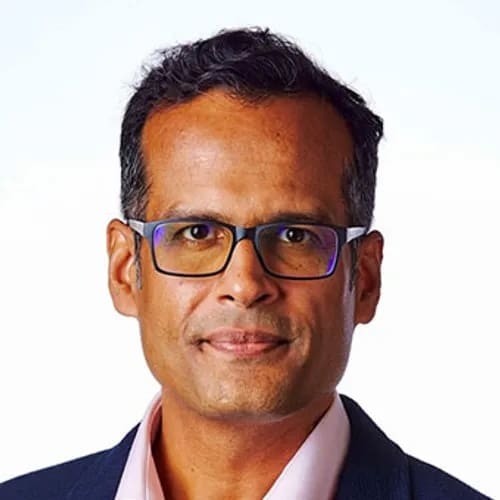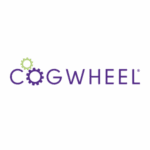From significant capital costs in construction or asset acquisition to ongoing operating costs, hotels come with a hefty price tag – just ask any hotel owner.
In today’s competitive and complex landscape, a growing number of hotel owners are taking an increasingly active interest in their investments to the benefit (and at times, frustration) of the property’s management team. This engaged owner approach can lead to increased management direction and support; however, it may also result in managers needing to further justify their decisions and communicate effectively to an individual with interests that are driven primarily by revenue maximisation.
While revenue management is not a new industry practice, it is not always understood or appreciated by property owners. How can revenue managers demonstrate the value that revenue management brings and its positive impacts on profit to their owners?
Revenue management is a cost-saver, not a cost centre
Many property managers have firsthand revenue management experience and recognise the technological benefits and potential for maximising revenue. However, some regional hotel owners still consider revenue management another additional cost and something “nice to have.”
When utilised to its fullest potential, revenue management technology positively impacts efficiency and improves operational performance across an entire property. Its advanced forecasting capabilities helps hotel better manage staffing levels across all departments. For example, if a hotel can anticipate accurate levels of demand, it can ensure the optimal number of staff are working and avoid under or over-staffing during periods of higher or lower demand.
During periods of higher forecasted demand, it is important hotels are staffed appropriately to handle check-ins, check-outs and room attendance to make the guest experience smooth and pleasant. Guest satisfaction is a critical driver of repeat business, reputation management positioning and brand perception – all important impacts in an asset valuation.
This same principle can be translated throughout the hotel’s entire operation for better overall staffing and inventory levels. Optimised wage costs translate into savings which contribute directly to the hotel’s bottom line.
Revenue management attracts the right guest for the right price
Hotel owners should be aware that not all business is good business. Hotels that do not utilise revenue management technologies and strategies can easily fall into the trap of selling out to lower-rated business thereby losing out on higher-rated business and customers. This is the equivalent of throwing money away because a full hotel does not always mean that it’s a profitable hotel. Through the use of an automated revenue management system, hotels are able to better identify the customers that provide the greatest long-term value to the business.
To identify guests offering long-term revenue potential to a hotel, properties need to take a holistic view of their guests’ activities, not just their room spending. Data from transaction systems should be integrated to provide a true picture of a guest’s preferred activities and their overall value, considering all ancillary spending from online reservations to check-out, food service to spa services, guest rooms to gift shop, and more.
In addition to making more profitable decisions, this data allows hoteliers to make more informed decisions about promotions, service offerings, inventory levels and food and beverage options. Furthermore, this integrated customer behaviour data supports wiser pricing decisions, supplier choices and financial strategies. Forecasting and optimisation can then provide controls to ensure that revenues are maximised across the entire operation.
Revenue management improves the value of a hotel
The flow-through additional revenue that comes from the proper utilisation of revenue management systems and strategies can directly impact a hotel’s bottom line results, making it a valuable tool in increasing a hotel’s valuation.
Increased revenue leads to higher cash flow, which has a number of benefits from giving the hotel greater day-to-day liquidity, to having money in the bank, to generating interest. By using revenue management to increase revenues on a regular basis, the amount of cash available after expenses also increases – making further reinvestment possible. This powers a positive cycle of higher revenues. To improve cash flow and grow the property value, it is truly in the hotelier’s best interest to ensure they are leading the way when it comes to revenue management.
Additionally, for those owners or group investors with multiple properties, or those looking to expand their portfolio, setting revenue management standards across a hotel group or chain will improve the performance of the overall portfolio. Through data collection and property comparisons, hoteliers can better determine how to price a hotel chain in different countries. Accurate forecasting data, combined with market research and analysis, also makes it possible for hoteliers to carry out realistic feasibility studies for future hotels looking to join the group, refurbishment investments, or to assess future opportunities to open new hotels.
But what financial measurements are the right measurements?
A hotel’s revenue management performance may have traditionally been measured by average daily rate (ADR) and revenue per available room (RevPAR); however, the practice has evolved past only using these standards. New revenue management principles can be applied beyond just rooms, or even beyond a single property itself. Today, hoteliers can look at how their hotel is performing compared to the wider market. To do this, it is vital that hoteliers identify the right competitor set and review this set regularly. Hoteliers need to look at the location, product and service in addition to what guests are saying about these hotels. Once the right competitor set has been identified, a hotel’s market penetration index (MPI) is determined by dividing the hotel’s occupancy by the market’s occupancy. This metric is important as it allows hotels to see their position and performance in relation to their competitors and the market in general.
While a hotel owner will not need to have intimate knowledge of all hospitality industry financial measurements, it is important that all departments – sales and marketing, finance and operations – use standardised definitions and approaches so that the business’s performance can be easily articulated to all owners or investors.
Setting yourself up for success with revenue management
The hospitality industry is always evolving and with an upcoming softening in some regional economies predicted for the year ahead, many hoteliers are in for a challenge. The hotels whose owners understand and embrace revenue management will not only survive – but thrive in the future.
About the author
Rachel Grier is the Managing Director, Asia Pacific for IDeaS – A SAS COMPANY, responsible for growing IDeaS Asia business and enhancing the company’s leading brand reputation in the dynamic Asian hospitality sector.
Rachel possesses a unique combination of successful leadership experiences in enterprise software and hospitality sales and marketing. With more than two decades of experience, she has a record of growing businesses in the regional hospitality and travel sectors across a range of established and emerging markets in Asia, the Pacific and the Middle East.
She developed her travel industry sales and marketing skills across a range of travel technology and hospitality industry brands. Most recently she was senior vice president of sales, Asia Pacific and the Middle East for hotel central reservations leader Pegasus Solutions.
Rachel previously worked as the area director of sales and marketing for the InterContinental Hotel Group in Japan where she oversaw a major restructure and was responsible for the sales, marketing and revenue results and has held senior leadership roles within organisations such as Per Aquum Resorts, Spas, and Residences, Rendezvous Hotels International and FCm Travel Solutions ( Flight Centre).


















